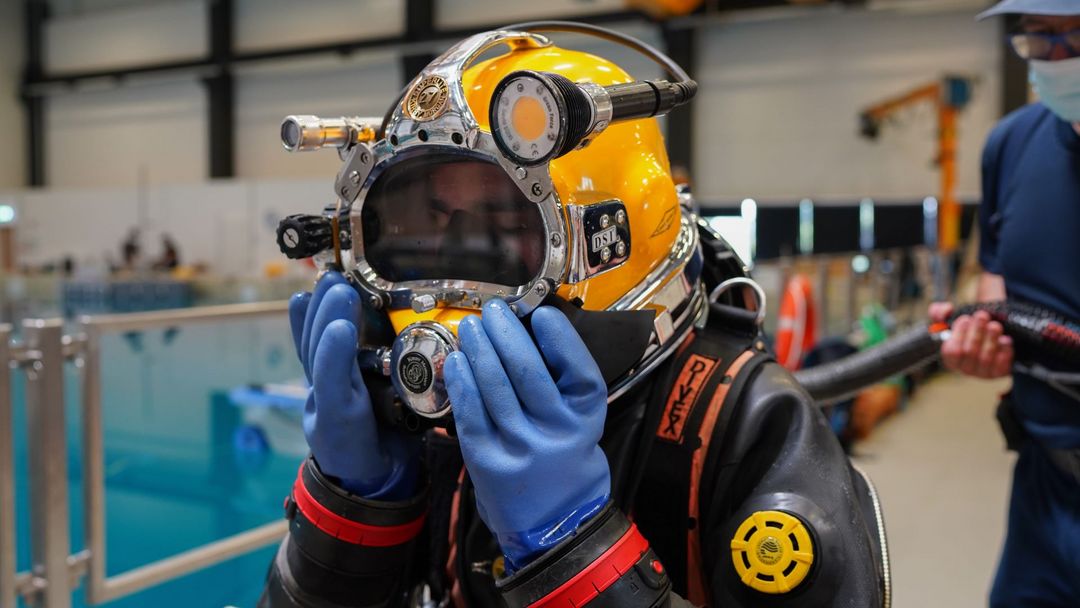
Diving with robots: New salvage diver group at the DFKI Robotics Innovation Center
| Robotics | Robotics Innovation Center | Bremen

Varied support for research
The new diving team plays a central role in the execution and safeguarding of underwater experiments. Its missions, which are coordinated by the Maritime Robotics Team or as part of research projects, cover a wide range of tasks. These include moving, recovering, attaching and detaching underwater research objects, such as test objects or artificial bottom structures. The divers are also responsible for collecting important data and making measurements that are necessary for research but cannot be collected directly by robotic systems.
Operations in the test basin and open waters
Most of the diving group's missions take place in the modern 3.4 million liter test tank in the Maritime Exploration Hall at DFKI in Bremen. Here, complex underwater tasks can be trained and optimized under controlled conditions. In addition, the divers take on important tasks in the operation, setup and maintenance of the test tank. But their work does not end in the laboratory. Open water such as rivers or lakes are also possible locations. A comprehensive risk assessment ensures that health and safety regulations are met during all operations.
Open water challenges
In open water, the divers often work in difficult conditions such as poor visibility and even complete darkness at depths of up to 20 meters. In cases where objects or people are missing, DFKI divers are trained in line-based searches. They use a line, similar to an adjustable windshield wiper, to systematically search different areas. Special helmet diving equipment is used for particularly demanding tasks, such as underwater welding.
Scientific cooperation and voluntary commitment
The group also collaborates on research projects with diving teams from partner institutions. One example is the DeeperSense project, in which DFKI, together with international partners, has succeeded in improving the environmental perception of underwater robots using generative artificial intelligence. As part of this project, several tests were carried out in Lake Starnberg with divers from the German Federal Agency for Technical Relief (THW) and DFKI.
DFKI salvage divers are also active in civil protection and disaster control. During the flood disaster of 2023/2024, for example, they supported various rescue and search operations as well as dike protection.
Advancing research and disaster relief together
The salvage diver group currently consists of three employees of the Robotics Innovation Center who have successfully completed their training as salvage divers at the THW Cloppenburg. The group is open to all DFKI employees with the appropriate training. The group was supported by BG ETEM in defining and planning the general safety requirements.
The cooperation between DFKI, THW and BG ETEM shows how science, occupational safety and volunteer work can successfully work together to improve the safety and efficiency of underwater operations. This benefits both research and disaster control. With the new diving group, the DFKI Robotics Innovation Center is well positioned to realize future-oriented projects in underwater robotics and to contribute to the further development of this field.
For questions and further information please contact the DFKI diving team at diving@dfki.de.
Contact:
Felix Bernhard, B.Sc.
- Felix.Bernhard@dfki.de
- Phone: +49 421 17845 6647